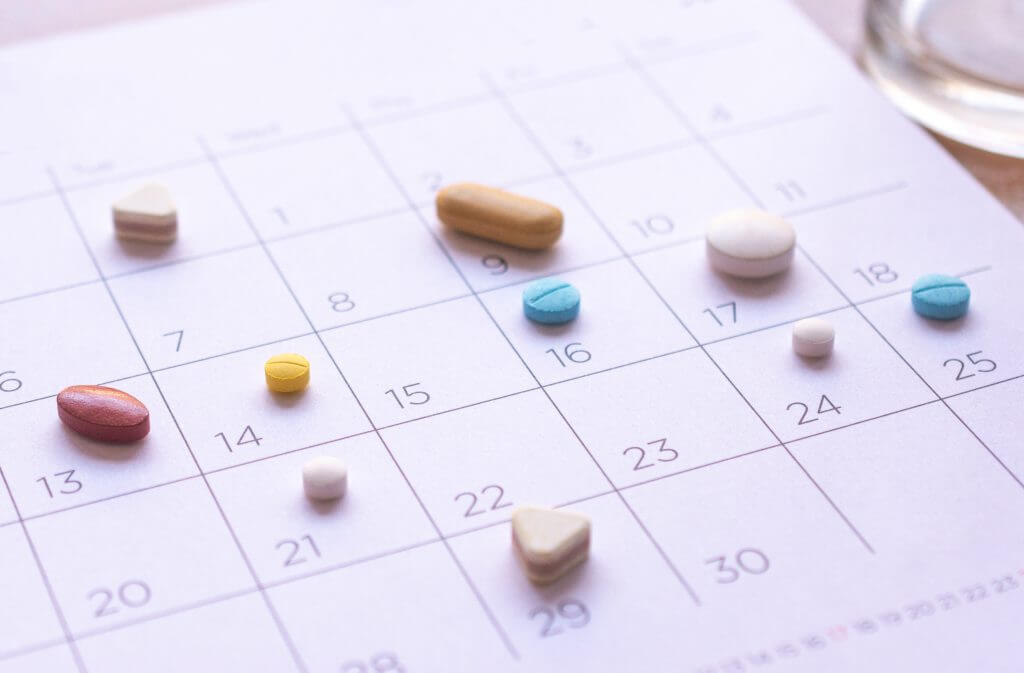The Dangers of Skipping Your Medications
Missing doses can lead to bigger health issues and higher medical costs. Learn what’s behind the risks — and how to take your medicine on schedule.

Has this ever happened to you? You spot your prescription bottle on the kitchen counter and wonder, “Did I take my medication today?”If this sounds familiar, you’re not alone. In the U.S., about 50% of medications for long-term conditions aren’t taken the way they were prescribed. And up to 30% of prescriptions are never even filled.
- Skipped a dose.
- Cut pills in half.
- Taken an over-the-counter drug instead.
- Not filled the prescription.
Whatever the cause, not taking your medication as prescribed can put your health at major risk. In fact, it causes an estimated 125,000 deaths a year, the Centers for Disease Control and Prevention reports.
“Stopping a medication can set back your treatment plan, increase the time it takes to feel better, and complicate the condition your medication was intended to treat,” says Mary Bridgeman, PharmD. She’s a clinical professor at the Ernest Mario School of Pharmacy at Rutgers University.
On the other hand, the best treatment outcomes happen when people take their medication correctly 80% of the time. So you don’t even have to have a perfect record — but it’s really important to try to get as close as possible. To help get you motivated, here are 6 ways missing your meds could set your health back and how to stay on track to protect your well-being.
Interested in receiving additional tips and insights on managing your conditions, healthy living, and getting the most out of your benefits? Click here to sign up for our free newsletter.
1. Your condition could get worse.
Medical conditions, especially chronic ones, rarely go away on their own. Stopping a medication you’re taking to treat one of those illnesses can cause it to get worse. Consider high blood pressure: Blood pressure medications help relax your blood vessels, make your heart beat with less force, and keep the right balance of salt and water in your body. Skipping a dose (or several) can raise your blood pressure. That puts you at higher risk for heart disease, heart attack, and stroke.
2. Your symptoms can get harder to treat.
Many medications are preventive. You take them to stop certain symptoms of a disease before they even start. They can also make symptoms easier to control when they do happen. But for them to work, they have to be taken regularly and correctly, Bridgeman says.
Long-term asthma control medications are a good example. Their big benefit is preventing asthma attacks, which can scar the lungs. If attacks aren’t prevented and the lungs get scarred, asthma medications don’t work as well and less air is able to move through the airways. Over time, uncontrolled asthma leads to a cycle of more attacks, more scarring, and worse symptoms that get harder and harder to manage.
3. You may develop additional health issues.
Untreated chronic conditions can do a lot of damage to your body. Diabetes is one of those conditions. If you’ve been prescribed medications to keep your blood sugar in a healthy range and you’re not taking them correctly, your blood sugar levels can creep up. High blood sugar can damage your blood vessels and lead to:
- Vision issues or blindness.
- Nerve damage.
- Kidney disease.
- Heart attack or stroke.
Another example is rheumatoid arthritis (RA). With this autoimmune condition, your immune system attacks healthy cells, causing inflammation and joint damage. Treatment for RA helps slow the disease; suddenly stopping treatment could cause more damage to your joints. Plus, the inflammation that’s happening throughout your body could raise your risk of developing lung disease, osteoporosis, heart problems, and more.
4. You may need to take more prescriptions.
Untreated chronic conditions can do a lot of damage to your body. Diabetes is one of those conditions. If you’ve If you’re already struggling to take the medications you have now, the last thing you want is to add more to your routine. Unfortunately, that can happen if you’re not properly managing your illness. Remember: Missing your diabetes medications could raise your blood pressure, which may lead your doctor to prescribe a beta blocker or other hypertension medication. Or if you already have high blood pressure and it seems that your meds aren’t working, your doctor may add 1 or 2 more to your list.
5. You might experience side effects.
Just as some medications cause side effects while you’re taking them, others can cause serious side effects if you stop taking them too soon. “Abruptly discontinuing some medications can be downright dangerous,” Bridgeman says. If you quickly stop taking antidepressants, for example, you can have withdrawal symptoms such as:
- Nausea.
- Trouble sleeping.
- Dizziness.
- Anxiety.
- Worsening depression.
- Paranoia.
- Suicidal thoughts.
Never stop taking medication without talking to your doctor first, says Bridgeman. And be sure to mention if a medication is causing unpleasant side effects. Your doctor may be able to reduce your dose or switch your prescription to help you feel better.
6. Your healthcare costs could increase.
Not taking medication correctly is behind 50% of treatment failures and up to 25% of yearly hospital visits. More medical visits can lead to more invasive medical procedures and more prescribed drugs — all of which can add up to higher medical bills.
Try these tips for taking your medication on time, every time.
If taking your medication as prescribed seems daunting, there are many ways to make it easier — and you don’t have to go it alone. Try these tips to keep you on track:
- Take your pills at the same time every day to make it a habit. You should also connect them to something else you already do daily. Some examples: brushing your teeth or pouring that first cup of coffee.
- Use a digital health management app[1] to set reminders instead of just setting an alarm on your cell phone. These phone apps are often paid for by your health plan or employer. They can have built-in reminders and checklists to help you stay on top of your meds.
- Create a “medication calendar.” It can be any old calendar. Just put it somewhere highly visible, and cross off each day when you’re done taking your medication, Bridgeman recommends.
- Use a pill container with clear inserts to organize your pills, especially if you take a medication more than once a day or if you take multiple medications. That way you’ll know just by looking at the container if you’re up to date or have missed a dose.
- Talk to your healthcare team, especially if you’re worried that a medication isn’t working, or the side effects are bothering you. They may be able to adjust your prescription or let you know if the side effects will go away once your body adjusts to the medication. A digital health management app can connect you with a care advocate. They can make an appointment or possibly even change your prescription without you making a trip to the doctor’s office.
- If you’re having trouble paying for your medication, ask your doctor about switching to a generic version or getting a 90-day supply, both of which can be cheaper. Talk to your pharmacy about possible discounts, too.
Contact your health plan to see if you’re eligible for Wellframe.
